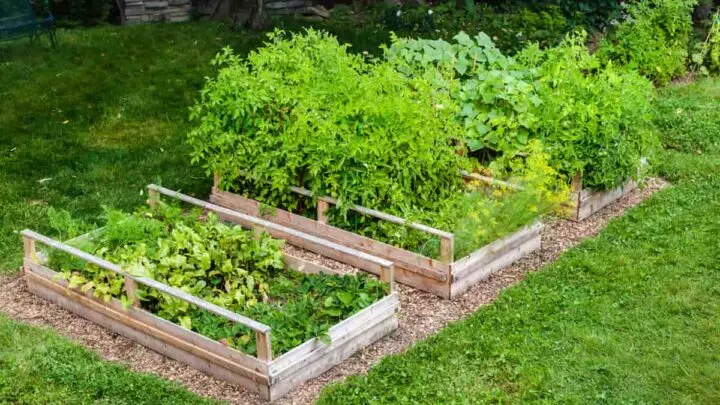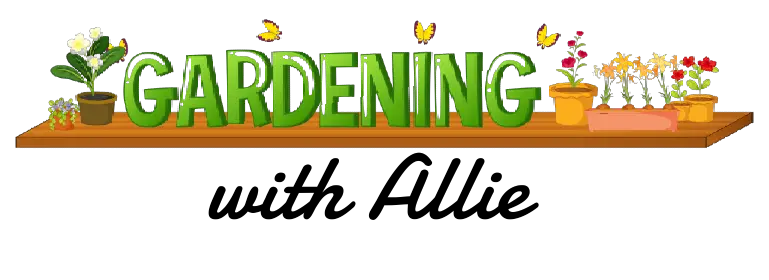With the popularity of raised gardening, it is no wonder that we have really begun to look into the different varieties of vegetables inside our raised garden beds. This is a great way to grow healthy foods for your own family so that you know where it is sourced from. Learning how to grow beets in a raised garden is a great way to start gardening or expand your craft beyond the typical vegetables!
To grow beets in a raised bed you’ll first need to sow the seeds at least 2 inches apart and 6 inches deep. Beets grow best in loose soil and low acidity. Adding some fertilizer during the seedling stage will set your beets to grow well from the start.
Here we will discuss the best ways to grow beets in a raised garden to optimize your harvest!

Do Beets Grow Well in Raised Beds?
Beets grow very well in raised beds. This is because they are root vegetables and grow under the soil. Raised beds add an extra few inches of loose soil that beets need to grow!
Raised beds also ensure that your soil is healthy and loose. Compact soil that is filled with rocks, clay, and other elements that are harder to grow around is not an excellent match for beets.
Beets are a cool-weather vegetable and grow well when paired with other plants like radishes, brassicas, or even onions!
How Deep Does a Raised Bed Need to Be for Beets?
Around six inches should be a great depth for beets. If you are sowing in other root vegetables like carrots, your bed may need to be a little deeper. The deeper the bed, the more room your plants have to obtain nutrients.
Another thing to keep in mind is how to keep your soil loose. Additives that may help loosen your soil are:
- Wood ash
- Vermiculite
- Perlite
Wood ash can help loosen clay and reduce the pH of your soil and add elements like Potash that are important for plant development.
Vermiculite adds aeration and isn’t as bulky as perlite but will help retain moisture!
Perlite is a larger white piece and helps add aeration and drainage to your soil!
What is the Secret to Growing Beets?
Beets can be easy to grow if planted correctly!
- Sow seeds one to two inches apart.
- Cover loosely with soil
- Water well
Keep in mind that each beet seed will grow a couple of plants, so you should thin them out once your new seedlings emerge!
Beet leaves are a wonderful way to eat beets. Cook them as you would all your favorite greens!
Beets do not fair well in acidic soil. This is important to keep in mind when having your soil tested. Adding the wood ash from your fireplace can help reduce your soil acidity.
Should I Water Beets Every Day?
You should only water your beets when the soil begins to look dry. Too much water can kill your plants and lessen the number of available nutrients. The water will wash away all the good nutrients and leave your soil lacking.
When you water, try using compost tea to help keep your plants happy and healthy!
Should Beets Have Full Sun?
Beets should only have about five hours of sun a day. This is a cool-weather crop. Keeping this in mind is critical to realize that you can scorch your heat-tender plants easily by allowing too much sun.
Adding things like shade cloths can be a great way to extend the growing season of your more heat-tender crops!

What is the Best Fertilizer for Beets?
The age-old question of fertilizers will probably always be a huge debate in the gardening community. While many use commercially available fertilizers that are all-purpose, many choose the route of testing their soil to find out what they need!
Many favor a fish emulsion fertilizer, especially when organic gardening like this can attract flies into your garden. Other ways people choose to fertilize are compost and worm castings.
There are many other additives you can purchase to fertilize your beets as well!
Is Epsom Salt Good for Beets?
Epsom salt is a great fertilizer that is easily obtainable. It contains a lot of magnesium which helps ensure a great flavor of your beets.
Add to your watering can around one tablespoon and water your plants. This can help improve your beets’ flavor, and some even say prevent bugs!
Is Bone Meal Good for Beets?
Bone meal is high in phosphorus, which plants like beets need to develop a robust root system. We eat mainly the beetroot, so its development is very important to us!
Sprinkle bone meal into your soil to help your plants thrive!
Do Beets Like Lime?
Lime is an essential additive when it comes to beets. Beets do not like acidic soil, and lime helps combat this.
Lime is also high in calcium and magnesium, both of which are crucial for the beets to grow. Like us, when plants do not have everything they need to grow, they become stunted and stunted plants do not make good food.
Do Beetroots Like Manure?
Manure is high in nitrogen. Beets like manure, but it is important to use something to help neutralize the acidity. Some manures that beets will enjoy are:
- Rabbit
- Chicken
- Cow
- Horse
Really, it all depends on what is more available to you.
Rabbit manure is lower in its pH, making it an excellent fertilizer, and chicken manure needs to be composted down.
How Long Do Beets Take to Grow?
While it is essential to understand that this is all dependent on conditions surrounding growth, what parts of the plant you’re eating, and your specific variety, most beets take between seven and eight weeks to grow.
How Much Space Do Beets Need to Grow?
Because your beets are in a raised bed, proper spacing is critical to their success. You should be spacing your seeds out about one to two inches apart. Keep in mind each seed will produce around three plants and should be thinned based on which seedling is the healthiest and strongest.
Beets do wonderful in container gardens and will thrive in raised beds if given the right conditions to grow!
How Do I Know When Beets are Ready to Harvest?
You will know when your hard work of growing beets is done when you see a large beet poking its way from the ground. This beet should be firm and dark red. Beets store very well in root cellars and can be canned, pickled, and prepared in so many ways.
They make wonderful food!
Gardening is a wonderful pass time, and enjoying your labors’ fruits (and vegetables) is a rewarding experience. Producing healthy foods that you know how they were grown is a great way to understand our food systems! We hope you learned how to grow beets the best way, especially in raised gardens!

Hi there, my name is Allie and welcome to my blog; GareningWithAllie!
Much of what you see written here is just our personal experiences with gardening. Along with the content I write here, there is also a unique collection of gardening topics covered by some of our close friends. I hope you find everything you read here to be helpful, informative, and something that can make your gardening journey the most lovely experience ever! With that said, Happy Gardening!
